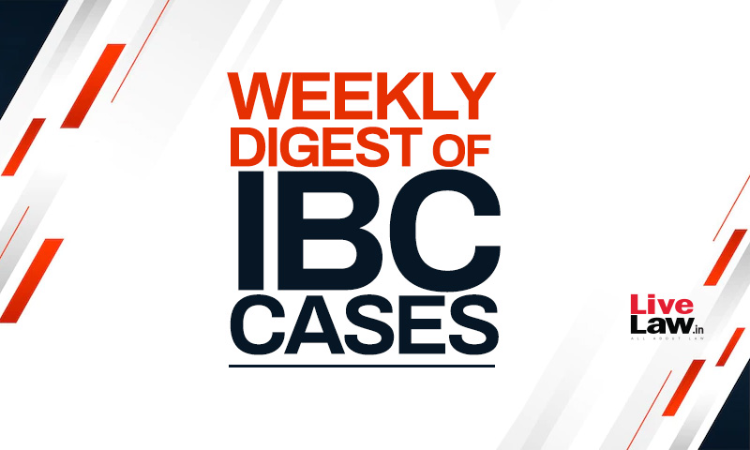Next Story
23 May 2022 5:30 PM IST
SUPREME COURT 1. Supreme Court Declares Noida As An Operational Creditor Under The Insolvency And Bankruptcy Code, 2016 Case title: New Okhla Industrial Development Authority v Anand Sonbhadra Case No.: Civil Appeal No. 2222 of 2021 The Supreme Court Bench comprising of Justice KM Joseph and Justice Hrishikesh Roy has upheld the NCLAT judgment wherein it was held that...

